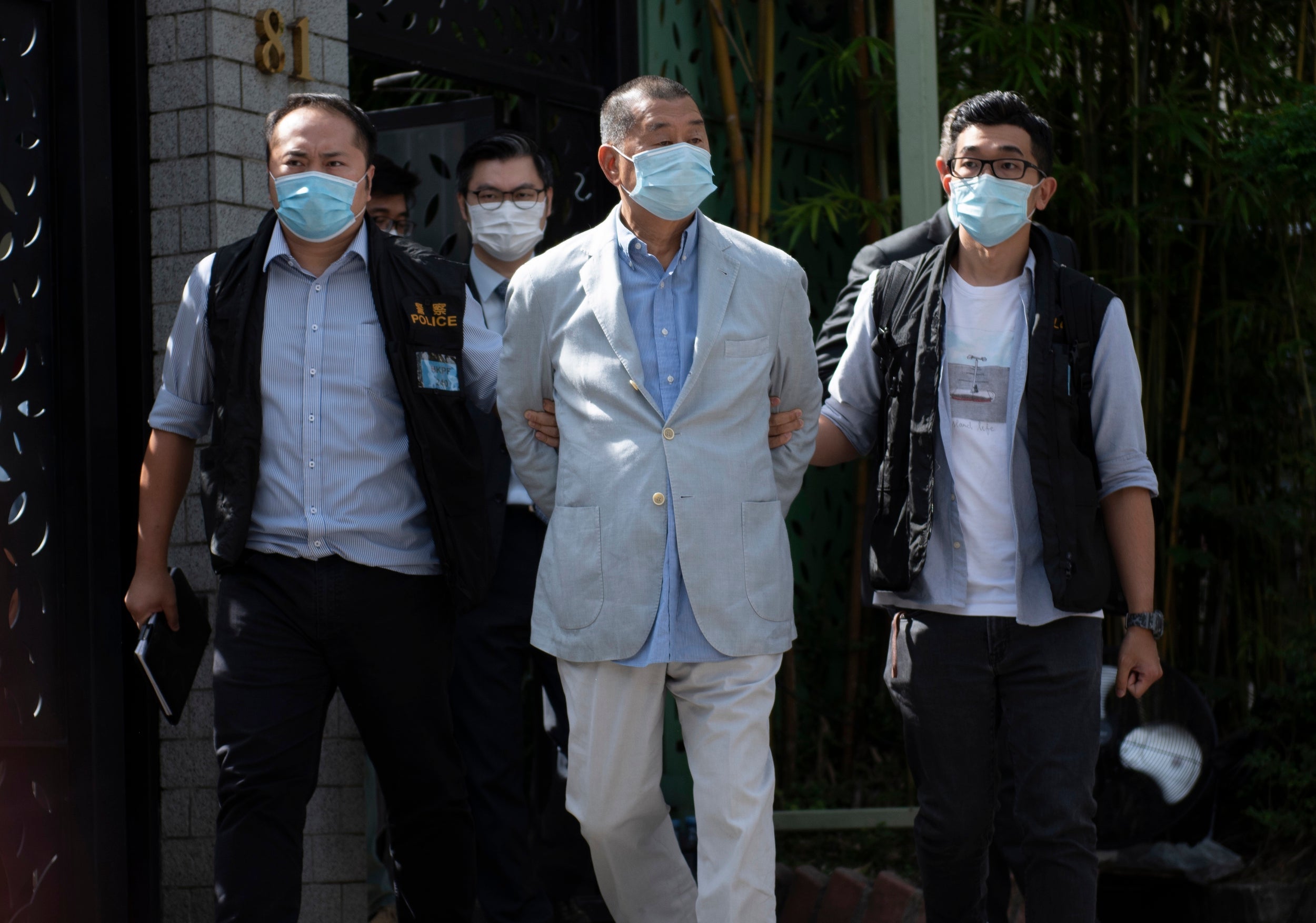UN human rights experts express deep concerns over Hong Kong security law in letter to China
Controversial legislation already used to arrest pro-democracy newspaper boss

UN human rights officials have warned China its new national security law imposed upon Hong Kong could be used to squash the territory’s freedoms.
In a letter to the Chinese government, Fionnuala Ní Aoláin, the UN’s special rapporteur for protecting human rights while tackling terrorism, said the legislation did not meet Hong Kong’s international obligations.
“We are particularly troubled that this legislation may impinge impermissibly on the rights to freedom of opinion, expression and of peaceful assembly as protected by the Universal Declaration of Human Rights,” the letter states.
Since the law came into force in June, it has already been used by the Hong Kong authorities to suppress protest and dissent in the region.
Last month, the media tycoon and pro-democracy activist Jimmy Lai was arrested on suspicion of foreign collusion under the national security law.
Lai is the founder of the pro-democracy tabloid Apple Daily, and has repeatedly criticised authoritarian moves by Beijing to diminish Hong Kong’s autonomy.
Police also raided the offices of Apple Daily following Lai’s early-morning arrest, and several other executives in Lai’s Next Media company were also detained.
The Chinese coastguard has also reportedly detained a dozen activists from Hong Kong who were attempting to flee the territory in a speedboat, The New York Times has reported.
At least one of those captured was under investigation because of the security law and attempting to reach Taiwan, where several hundred democracy activists and dissidents from Hong Kong have taken refuge since the wave of protests last year.
Ms Ní Aoláin and her colleagues are particularly critical of the secession and subversion provisions in the law and how broadly they are defined.
Subversion charges are normally used by repressive regimes to “punish individuals for what they think (or what they are thought to think) rather than on the basis of action or activities which pose a defined criminal threat”, their letter says.
They also accuse China of using charges of terrorism under the law to clamp down on non-violent political activity.
“The use of the National Security Law’s terrorism measures should be strictly limited to address conduct which is genuinely terrorist in nature and should not be used to restrict or limit protected fundamental freedoms, including the rights to opinion, expression, and of peaceful assembly.”
Finally, the national security law is also a breach of the agreement between China and the UK that saw the former colony returned to China in 1997 provided its self-governing and free status was retained for 50 years, the UN human rights experts argue.
The 14-page letter was sent to China on Wednesday and published by the UN’s human rights office on Friday.
Join our commenting forum
Join thought-provoking conversations, follow other Independent readers and see their replies
Comments
Bookmark popover
Removed from bookmarks